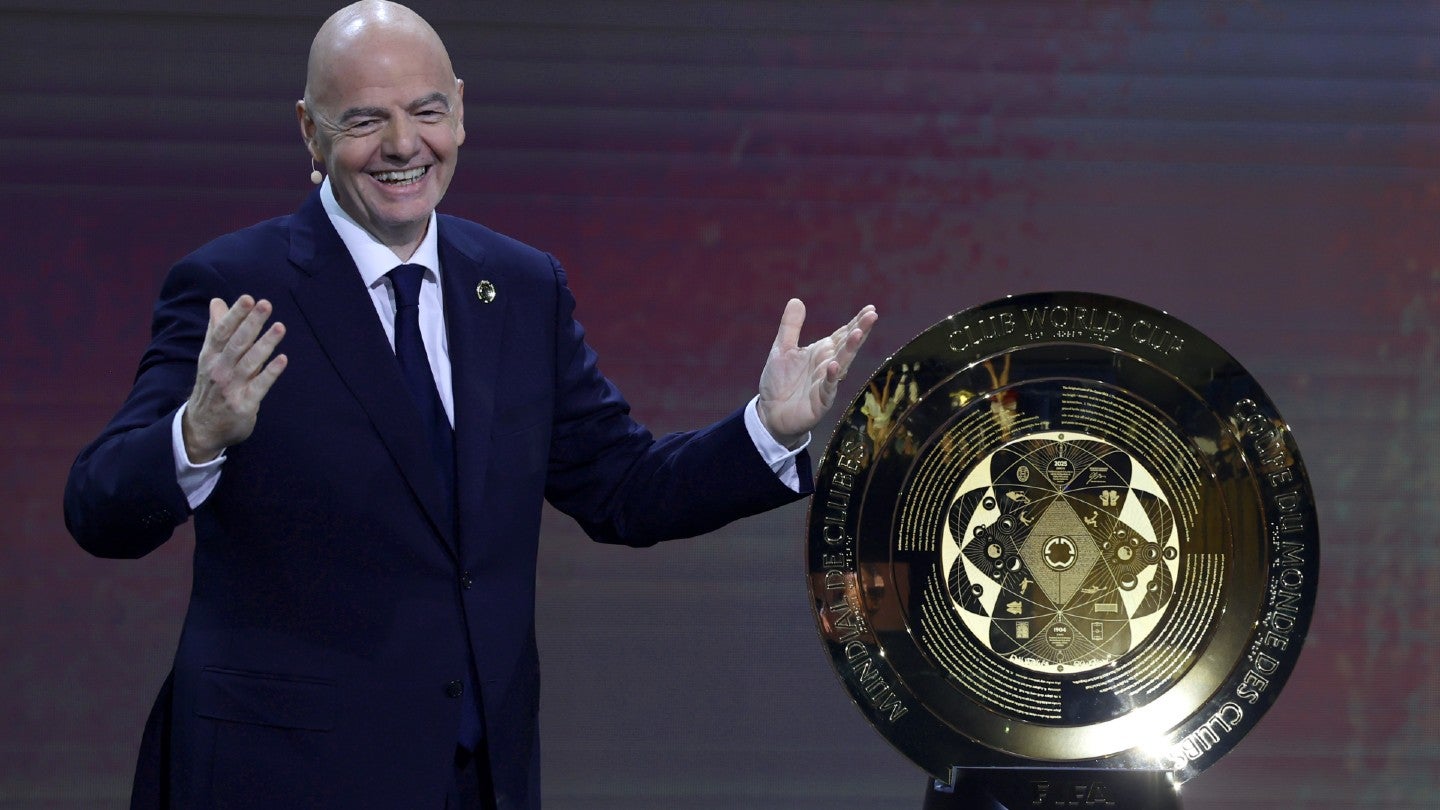
FIFA, soccer’s global governing body, has announced that $1 billion will be distributed in prize money to the participating teams in the revamped Club World Cup (CWC) club competition debuting later this year in the US.
The distribution figure was unveiled at the 31st meeting of the FIFA Council yesterday (March 5).
The tournament, which kicks off on June 14 at Hard Rock Stadium in Miami, features the top 32 clubs in the world, playing 63 matches over 29 days.
The teams will split what is anticipated to be the biggest prize in club soccer across a seven-match format.
FIFA also announced that an additional minimum of $250 million will be distributed to non-participating clubs around the world “as solidarity”.
The prize money and solidarity fund will be entirely covered by the tournament revenues, which will be boosted by international streaming platform DAZN’s $1 billion exclusive global media rights deal with FIFA.

US Tariffs are shifting - will you react or anticipate?
Don’t let policy changes catch you off guard. Stay proactive with real-time data and expert analysis.
By GlobalDataOn an individual club basis, those involved will receive a participation fee for entering the group stage and performance fees based on progression to later rounds.
The CWC will feature a new format in which continental governing bodies, apart from the Oceania Football Confederation (OFC), receive multiple team slots.
Europe’s UEFA, with 12, will have the most teams. The lineup will include Chelsea, Real Madrid, Manchester City, Bayern Munich, PSG, Inter Milan, Porto, Benfica, Borussia Dortmund, Juventus, Atletico Madrid, and Red Bull Salzburg.
The European clubs are expected to gain a higher revenue share than clubs from other continents.
FIFA president Gianni Infantino said: “The FIFA Club World Cup will not only be the pinnacle of club football, but also a vivid demonstration of solidarity that will benefit clubs at large to a scale that no other competition has ever done.
“All revenue generated by the tournament will be distributed to the participating clubs and via club solidarity across the world as FIFA will not keep a single dollar. FIFA’s reserves, which are there for global football development, will remain untouched.”
Before DAZN stepped in, FIFA had struggled to secure a broadcast partner, with many traditional media giants unwilling to pick up the rights as the competition has proved extremely controversial with many of soccer’s major stakeholders.
Clubs and players are unhappy about the extra games and workload, and a formal complaint and legal action by the players' union FIFPRO was filed around this issue last year.
The huge financial rewards for participating teams could go some way to appeasing the concerns raised by top clubs in Europe.
Some estimates suggest the winning club in the 32-team tournament could receive as much as $100 million, which would be equivalent to winning Europe’s elite UEFA Champions League club competition, but after playing only seven matches.
At the council meeting, FIFA also shared a revised budget revenue target of $13 billion for the 2023-2026 cycle, which incorporates $2 billion in revenues from the CWC.
Meanwhile, FIFA has confirmed that the inaugural Women’s Club World Cup has been pushed back to 2028.
In May last year, the governing body announced that the debut edition of the competition would be played in early 2026.
The FIFA Council stated that the decision for the delay was taken “following constructive discussions with the confederations and key stakeholders.”
For 2026, the FIFA Council has instead approved the creation of the FIFA Women’s Champions Cup, which will be staged in the years in which the Women’s Club World Cup does not take place and feature the six winners of the confederation club competitions.
The first iteration will be held from January 28 to February 1 next year, with subsequent editions in 2027 and 2029.
The Women’s Club World Cup will involve 19 teams and be held every four years. FIFA initially unveiled plans to create a women’s version in December 2022.
The host nation of the first edition has yet to be unveiled.
The slot allocation for the inaugural edition will see the AFC (Asia), CAF (Africa), Concacaf (North America and Caribbean), and CONMEBOL (South America) receive two direct slots and one play-in slot each, while UEFA will have five direct slots and one play-in slot, and OFC will have one play-in slot.



